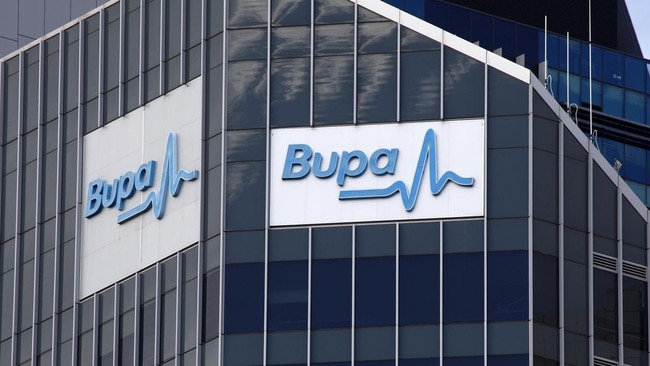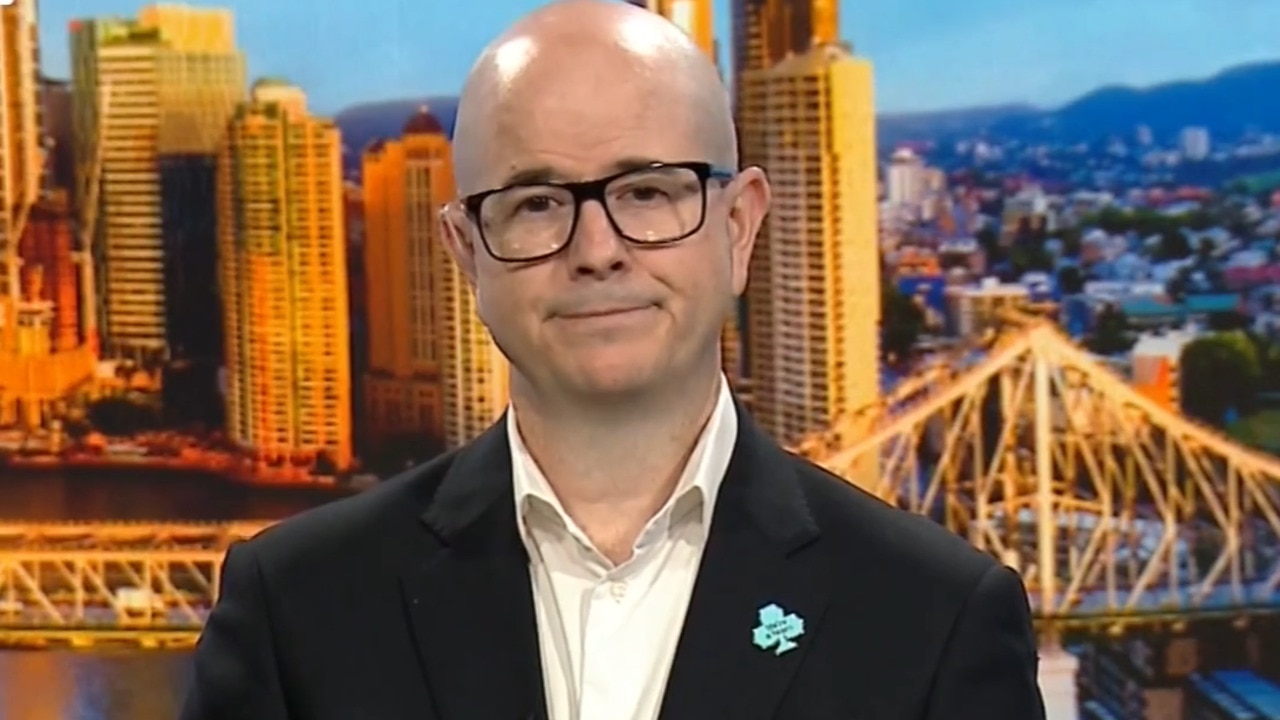Bupa offers doctors ‘admin payments’ as war with Healthscope private hospitals intensifies
In a move described as ‘unprecedented’, Bupa is offering doctors hundreds of dollars in payments in a major escalation of its dispute with private hospital provider Healthscope

Health insurer Bupa is offering doctors “administration support payments” if they move upcoming treatment to hospitals other than those run by Healthscope in an extraordinary escalation of the dispute between insurers and the private hospital operator.
In an email, seen by The Australian, Bupa says payments of $100 per patient, capped at $500, will be available to eligible doctors.
“However, we understand the uncertainty and disruption this creates for you, your patients and staff, as you might need to spend more time responding to patient questions and concerns about coverage for their upcoming hospital admissions.
“If you are credentialed at other hospital facilities, you and your Bupa patient may decide together if it is appropriate to consider transferring their care to one of these alternative locations. In recognition of the additional administrative burden created by this situation, we have introduced an administrative support payment.”
One doctor described the move as “extraordinary” and something they had not witnessed before.
In November, Healthscope dramatically announced it will terminate its hospital contract with Bupa on February 20 after it threatened legal action for what it claimed was a breach of contract.
Healthscope is Australia’s second-largest private hospital operator, with 38 facilities across the country. Bupa is Australia’s second-largest insurer and has 4.1 million clients.
When the contract does end, patients will in many cases qualify for what’s known as second-tier default benefits. Under the scheme, patients with private cover can still seek treatment at a hospital where there is no negotiated contract with their health insurer. The insurer will usually pay a percentage – typically around 85 per cent of the hospital costs – leaving the patient to pay the remainder of the bill. It’s a legislated measure designed to reward people who take out private health cover.

Prominent health economist Stephen Duckett, a close observer of the private health insurance industry for decades, said the incentive payment to surgeons by Bupa was unprecedented in the history of the private health sector in Australia.
“This is an unprecedented response,” said Professor Duckett, former Grattan Institute analyst and now at the University of Melbourne. “Disputes between hospitals and insurers occur so frequently that the Ombudsman has put out an advice on it, but I have never seen an incentive payment of this kind before.
“This is an incentive for these specialists to think about relocating these patients to other hospitals, which will impact adversely on Healthscope hospitals’ occupancy. But what Bupa is encouraging surgeons to do is to move their patients around a bit more, and trying to intervene in the choice between what hospital is the right hospital for any particular patient.
“I suppose it is Bupa saying we want our patients who have joined up with us to stay with us, and one of the ways of encouraging that is they can still get their procedure, but at a different hospital, by incentivising the surgeon.
“This is the first time I’ve ever seen an incentive payment of this kind, so it’s significant escalation (in the private health wars),” Professor Duckett said. “I think Healthscope probably thought that they could cope by encouraging patients to go to different hospitals and giving enough notice. I don’t think they contemplated that Bupa would encourage the specialists financially to use other hospitals.”

Bupa’s couching of the payment as covering administrative hassles for doctors appears to be a way of deflecting or papering over the obvious issues that arise when an insurer inserts itself into the clinical decision making process such as a choice of hospital. Some surgeons are so shocked at the move by the British insurer which has the second-largest membership slice of private health insurance in the country, that they described the payment as simply a bribe.
Professor Duckett said the incentive payment was part of a tit-for-tat escalation of a commercial dispute between two major corporate private health behemoths, with patients and doctors sandwiched in the middle. “Ethically of course, the doctor is obliged to put the patient’s interests ahead of any financial interest,” Professor Duckett said. “The way this incentive payment sounds, the way it’s phrased, is just saying, look, you’re gonna have to talk longer to your patient than you would otherwise. So we’re going to compensate you.”
Asked whether he would describe the payment as an unprecedented kickback to doctors, Professor Duckett said: “I’ve used the word incentive.
“But generally, I think the health insurers should be more interventionist. I think they should actually say ‘we know which procedural specialists have high rates of referral to intensive care, have higher rates of infections and so on’. And I think it’d be a good idea if there’s a bit more competition.”
Mark Ashton is a Melbourne-based plastic surgeon and a representative of the Royal Australasian College of Surgeons. He said the latest move was a serious development in the ongoing contractual dispute and the college worried about a lack of transparency involved.
“You have, effectively, a deal or an incentive being offered behind closed doors, which directly affects patient care, but the patient who’s often been paying their insurance for many years is not involved in that decision process” Professor Ashton said.
A Bupa spokesperson said it had started contacting doctors who admit patients to Healthscope facilities to “provide clarity around renegotiations, transitional arrangements, and broader support”.
“This included writing to co-credentialled doctors to provide up-to-date information for their Bupa patients and let them know we’ve introduced an administration support payment to help doctor practices manage any additional administration burden,” the spokesman said.
Bupa said it remained open to further discussions with Healthscope and hoped it would be able to resolve the contract dispute ahead of the February 20 deadline.
Healthscope declined to comment.




To join the conversation, please log in. Don't have an account? Register
Join the conversation, you are commenting as Logout